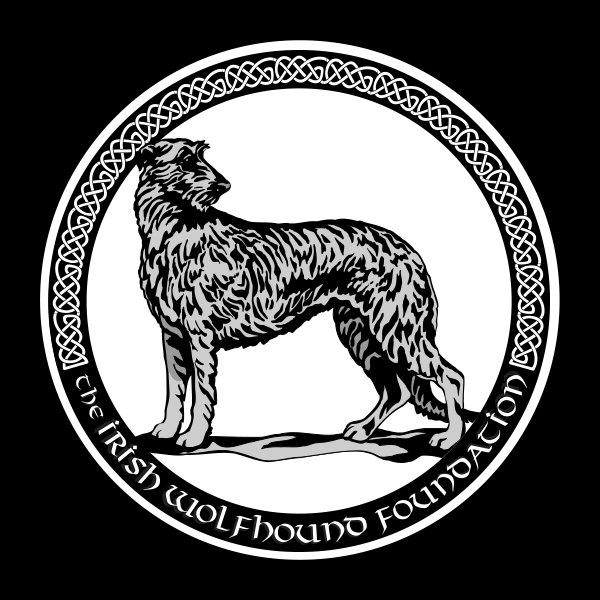[COMPLETED] Startle Disease: A New Genetic Disorder in Irish Wolfhounds
Treatment Options
Dr. Harvey notes that benzodiazepines such as clonazepam are often used very successfully for human startle disease cases where glycine transporters are defective. They enhance inhibitory transmission mediated by another type of receptor. In addition, startle episodes sometimes diminish after the first year of life.
Genetic Testing
There is a genetic test available to identify carriers (who are asymptomatic) available via Laboklin in the UK.
A new genetic disorder known as startle disease has recently been identified in Irish Wolfhounds from the USA. Dogs with startle disease have a low birth weight, muscle stiffness, tremor on handling and difficulty breathing. Professor Robert J. Harvey (UCL School of Pharmacy, London) and Prof. Diane Shelton (UCSC, San Diego) recently found the causative mutation for this disorder - a deletion in the gene encoding a glycine transporter called GlyT2. Carriers of the GlyT2 gene deletion show no discernable clinical differences from normal animals. The Irish Wolfhound Foundation has recently funded a new study on this disorder. Prof. Harvey will apply a new diagnostic PCR test to screen the >400 archived DNA sample in the Irish Wolfhound DNA bank, held by Prof. Nate Sutter (Cornell University) to determine the frequency of startle disease carriers in these samples.
Startle disease or hyperekplexia is caused by defects in mammalian glycinergic neurotransmission, resulting in neonatal hypertonia and an exaggerated startle reflex triggered by noise or touch. Startle disease has been shown in humans and animals to be caused by mutations in one of three genes (GLRA1, GLRB, and SLC6A5) encoding glycine receptors or transporters. Humans with startle disease show good therapeutic responses to benzodiazepines such as clonazepam, which enhance inhibitory transmission mediated by GABAA receptors (1). Recently, a litter of Irish Wolfhound puppies was identified (2) in which two puppies showed touch-induced muscle stiffness and tremor beginning 5-7 days post-partum (see picture of affected puppy). However, the puppies are unable to stand and show rigid extended posture in all four limbs. Symptoms ceased when dogs were relaxed or sleeping. Based on these clinical signs, we screened the possible candidate genes and found a defect in the glycine transporter 2 gene in the two affected puppies. Other members of the litter and the dam were shown to be carriers. Thus, a new cause of startle disease in the Irish Wolfhound breed showing an autosomal recessive mode of inheritance has been identified.
References:
1. Rees MI, Harvey K, Pearce BR, Chung SK, Duguid IC, Thomas P, Beatty S, Graham GE, Armstrong L, Shiang R, Abbott KJ, Zuberi SM, Stephenson JB, Owen MJ, Tijssen MA, van den Maagdenberg AM, Smart TG, Supplisson S, Harvey RJ (2006) Mutations in the gene encoding GlyT2 (SLC6A5) define a presynaptic component of human startle disease. Nat Genet 38: 801-806.
2. Gill JL, Capper D, Vanbellinghen JF, Chung SK, Higgins RJ, Rees MI, Shelton GD, Harvey RJ (2011) Startle disease in Irish wolfhounds associated with a microdeletion in the glycine transporter GlyT2 gene. Neurobiology of Disease 43: 184-189. http://eprints.pharmacy.ac.uk/1962/
Project contact: Prof. Robert J. Harvey, Ph.D., Department of Pharmacology, UCL School of Pharmacy, 29-39 Brunswick Square, London WC1N 1AX, United Kingdom. E-mail: r.j.harvey@ucl.ac.uk.
Co-Investigator: Nathan Sutter, Ph.D., Assistant Professor of Medical Genetics, Cornell University, College of Veterinary Medicine, VMC C3-179, USA. E-mail: nbs39@cornell.edu
Additional Study Details
| Study Date(s): | 2012-03-08 |
|---|---|
| Study Status: | Completed |
| Enrollment Status: | CLOSED to new enrollment |
| Lead Researcher(s): | Prof. Robert J. Harvey, PhD and Nathan Sutter, PhD |


